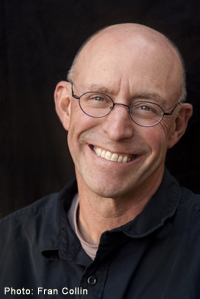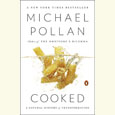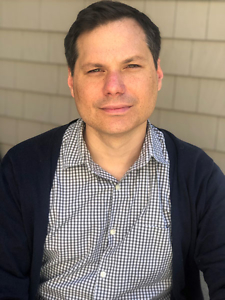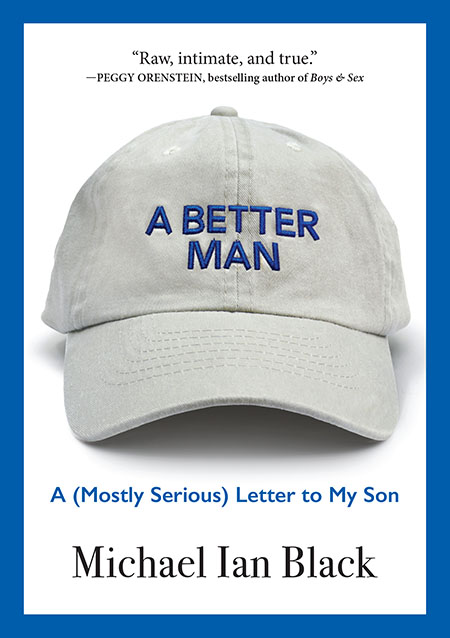The Glorious Pastime: Anjali Enjeti
Anjali Enjeti on the books that inspire her
In the essay “What Are You? Where Are You From?” — the introduction to her 2021 collection, Southbound — Anjali Enjeti writes, “I am half Indian, a quarter Puerto Rican, and a quarter Austrian. I am an immigrant’s daughter and also a daughter of the Deep South.” Enjeti, who grew up in Chattanooga and now makes her home near Atlanta, explores and embraces that multi-faceted identity in her essays, her political activism, and her fiction.
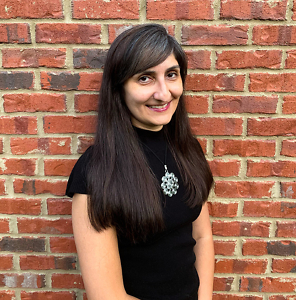 The Parted Earth, Enjeti’s debut novel, tells a story shaped by the sectarian violence of India’s 1947 partition, following the legacy of that trauma from the streets of New Delhi to 21st-century Atlanta. In her review for Chapter 16, Emily Choate described the book as an examination of “the personal costs of starting over in the face of tragedy, whether those tragedies are intimate losses or shockwaves of upheaval across an entire continent.”
The Parted Earth, Enjeti’s debut novel, tells a story shaped by the sectarian violence of India’s 1947 partition, following the legacy of that trauma from the streets of New Delhi to 21st-century Atlanta. In her review for Chapter 16, Emily Choate described the book as an examination of “the personal costs of starting over in the face of tragedy, whether those tragedies are intimate losses or shockwaves of upheaval across an entire continent.”
To mark this month’s paperback release of The Parted Earth, Chapter 16 asked Enjeti to share some of her favorite books and authors via our Glorious Pastime questionnaire.
Chapter 16: Tell us the first book you remember loving and what you loved about it.
Anjali Enjeti: Goodness, there are just so many! Aside from just about all of Judy Blume’s books, I’d say Louise Fitzhugh’s Harriet the Spy. The novel is, of course, based on a writer — a young girl who observes everything around her and keeps it in her journal. I read the book long before I ever imagined I could be a writer, but I did spend much of my youth journaling, so I suppose I related to Harriet!
Chapter 16: What books do you regularly urge friends to read?
Enjeti: I’m South Asian, so I love to recommend books by other South Asian authors, especially those who have been published by small presses. A few favorites as of late are two memoirs, Madhushree Ghosh’s Khabaar: An Immigrant Journey of Food, Memory, and Family and Neema’s Avashia’s Another Appalachia: Coming Up Queer and Indian in a Mountain Place.
Chapter 16: What are you currently reading and what led you to choose it?
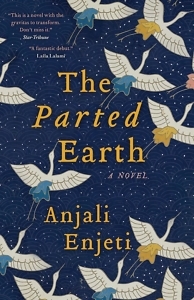 Enjeti: I’m reading Melissa Febos’ new nonfiction book about writing, Body Work: The Radical Power of Personal Narrative. It’s about the importance of telling our stories, especially as women and femmes, who are often made to feel as if our memoirs and personal essays don’t matter. Febos argues we are often made to feel that there is no more space in the literary landscape about our trauma or experiences with parenting or friendships. The book is a call to write our lives fearlessly and unapologetically.
Enjeti: I’m reading Melissa Febos’ new nonfiction book about writing, Body Work: The Radical Power of Personal Narrative. It’s about the importance of telling our stories, especially as women and femmes, who are often made to feel as if our memoirs and personal essays don’t matter. Febos argues we are often made to feel that there is no more space in the literary landscape about our trauma or experiences with parenting or friendships. The book is a call to write our lives fearlessly and unapologetically.
I’m enjoying it immensely, and it’s also a book I really needed to read. I’m often still saddled with such doubt when I sit down to write. The first thing that often enters my mind is: Who on earth would want to read this drivel? So much of writing for me is overcoming this insecurity.
Chapter 16: Is there an author or a book you wish were better known?
Enjeti: Novelist Bernice McFadden is not nearly as well known as she should be. After many years of publishing, the industry finally began recognizing her and her work about five years ago. She won an American Book Award, a New York Times’ Editors’ Choice Award, and an NAACP Image Award. But she should be read and taught by everyone, everywhere. Sugar, Gathering of Waters, and The Book of Harlan are three of my favorites of hers.
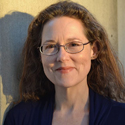
Maria Browning is a fifth-generation Tennessean who grew up in Erin and Nashville. Her work has appeared in Guernica, The Los Angeles Review of Books, and The New York Times. She’s the editor of Chapter 16.
